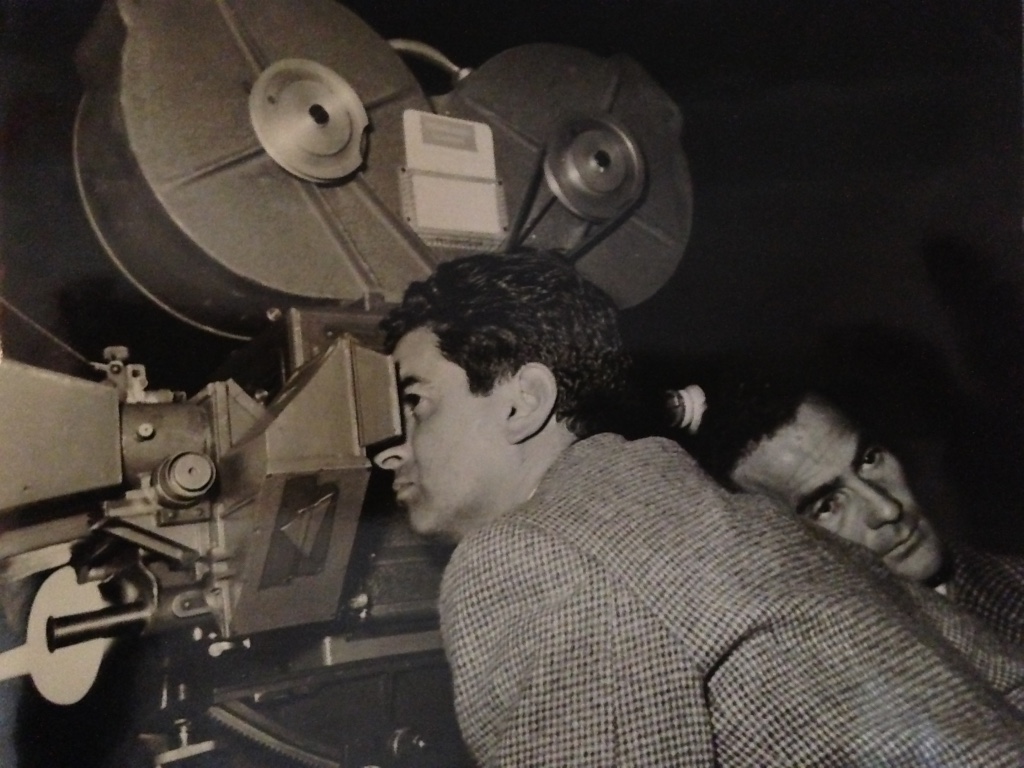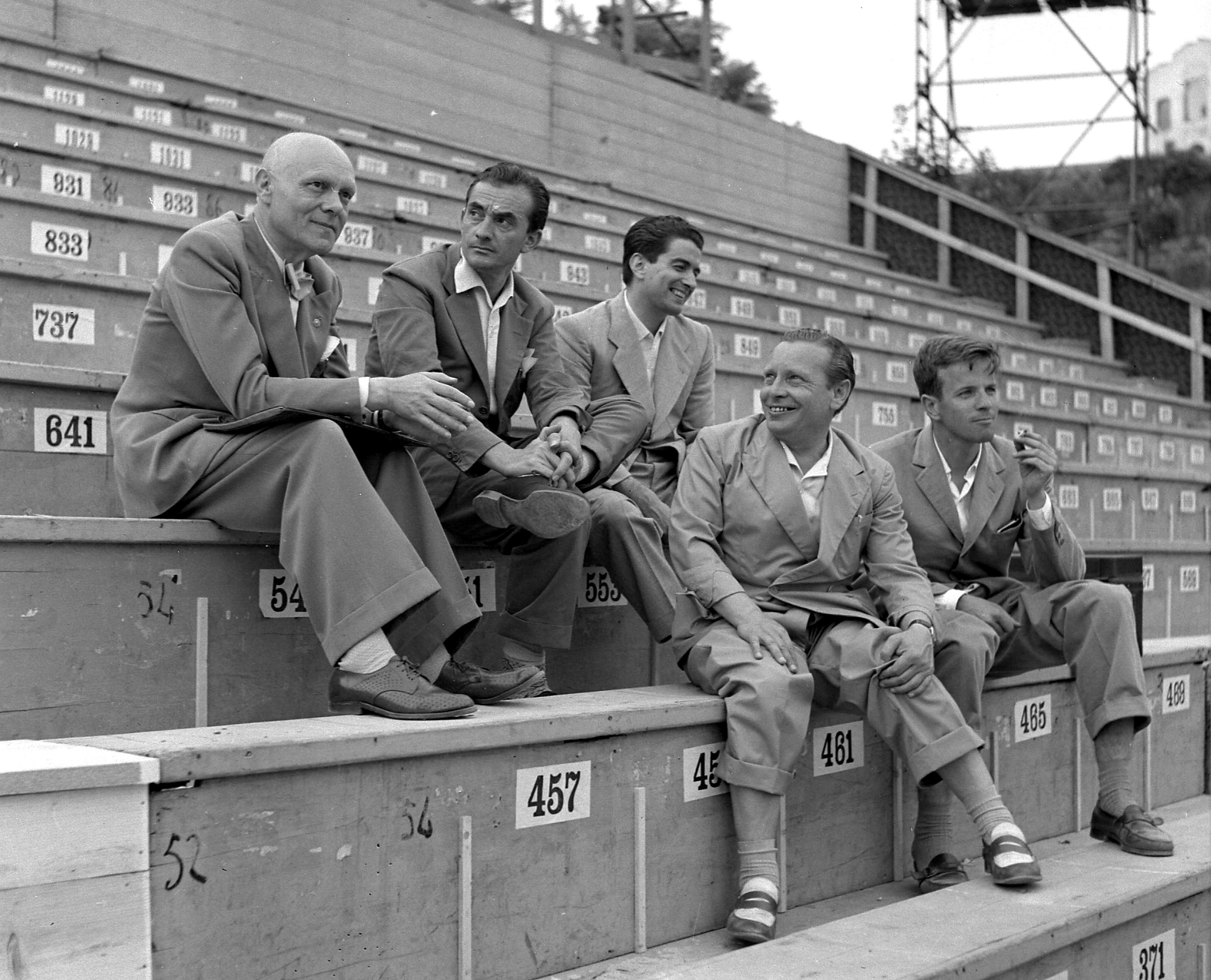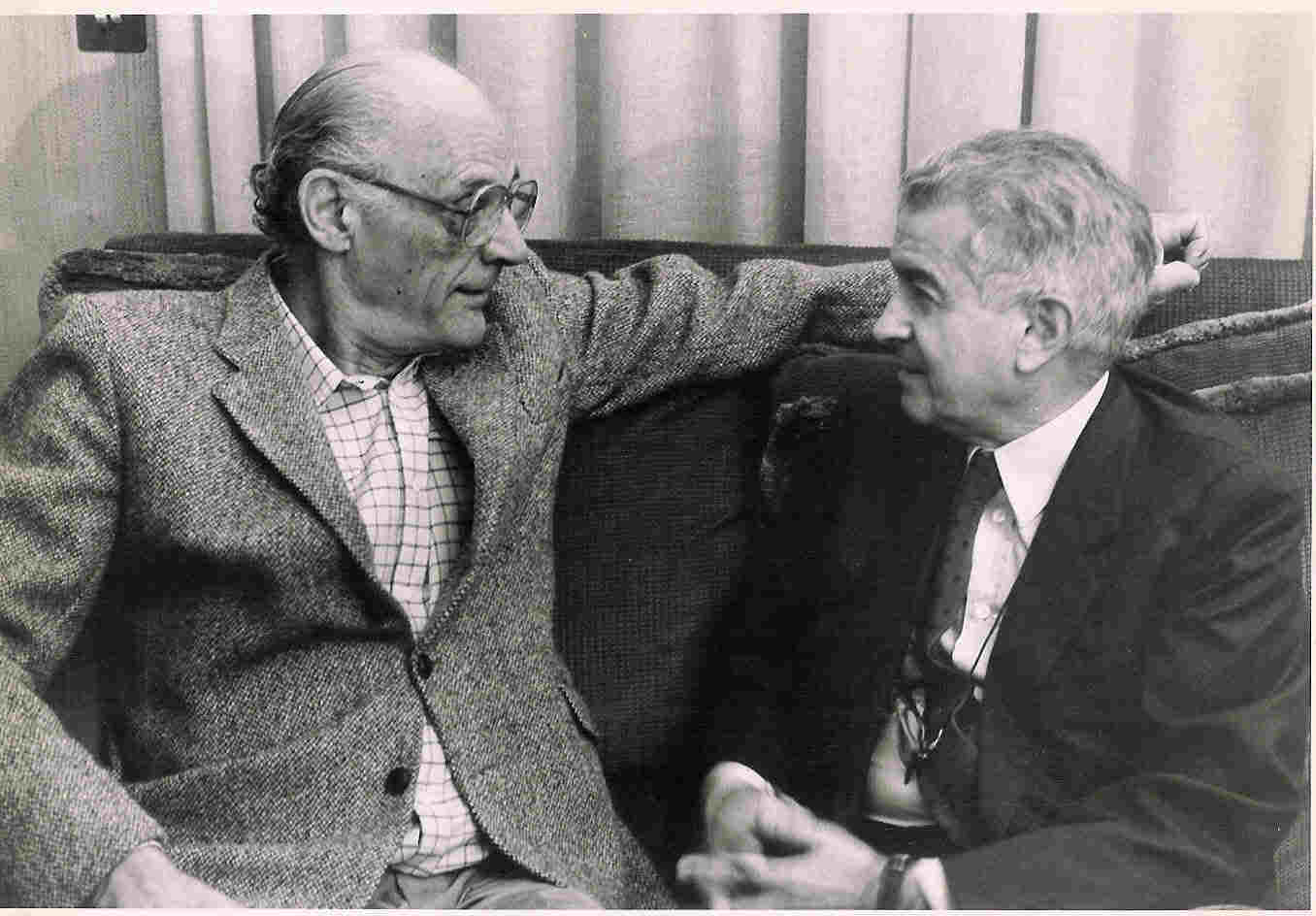


The director's adventure has three phases and three aspects: a human experience, a journey to distant lands, the construction of a city. And it begins with an immersion similar to that of a diver. No preconceived idea troubles the director. He lets the text work on him until it becomes a deep emotional sensation, a lucid and precise dream, which he feels compelled to reproduce in every detail, and communicate to others.
Personal note by Gerardo Guerrieri about his work with Luchino Visconti, around 1950.
Gerardo Guerrieri
Matera, February 4th 1920 - Rome, April 24th 1986
A keen translator and exegete, tireless in searching throughout the world under the most varied cultural tropics for myths, rituals, languages, styles, signs, theatrical and poetic texts - everything that could constitute, in a broad and unpredictable synthesis, an updated portrait of the world.
For thirty years, as an animator, together with his wife Anne d'Arbeloff, of the Teatro Club, Gerardo Guerrieri presented to Italians the most advanced artists of world theater research - the newest authors alongside the oldest traditions: the Nō theater of Japan, the dancers of Bali, the voodoo of Central America, the Australian aborigines. And then Ionesco, Genet, the Living Theatre, Grotowski, Kantor, Bob Wilson, LeRoy Jones, Peter Brook to name but a few.
As a translator, he mastered the two languages, English and Russian, which hegemonized a divided Europe. Divided not only externally but also within each nation and family. In America, he uncovered a thread that leads from Faulkner to the theater of Tennessee Williams and Arthur Miller. In Russia, a thread that leads from Gogol and Dostoevsky to Chekhov, his most beloved, investigated and skillfully translated author.
We find Gerardo Guerrieri alongside De Sica among the screenwriters of "Bicycle Thieves", alongside Visconti as a translator of Miller and Chekhov, alongside Strehler and Grassi as the founder of the Piccolo in Milan, alongside Paolo Grassi as the director of the Einaudi Theater Collection, alongside Silvio d'Amico in the editorial staff of the Enciclopedia dello Spettacolo. He was the prototype in Italy of the role of the dramaturg, with Luchino Visconti and at the Teatro stabile of Genoa, directed by Ivo Chiesa. He became the most experienced researcher, biographer, and essayist of Eleonora Duse, on whom he organized two famous exhibitions and collected an impressive archive of information and documents. The fields in which he extended his research and studies include music, anthropology, history of religions, philosophy of science, and art history.
Known in all the libraries of the world, Gerardo Guerrieri had become the expert, the confidant, the advisor,, the inspirer, and in many cases the friend of the many who turned to him with expectation, respect, eagerness for advice and opinions. It can be said that no intellectual has exerted a more decisive influence on Italian theater than him.
Mario Prosperi, June 22nd 1987 – Rai Radio 3 broadcast Un drammaturgo nel Labirinto
For further information:
Rai Radio 3 Wikiradio: Gerardo Guerrieri. February 4th 2021. with Stefano Geraci
Wikipedia, Gerardo Guerrieri web page
